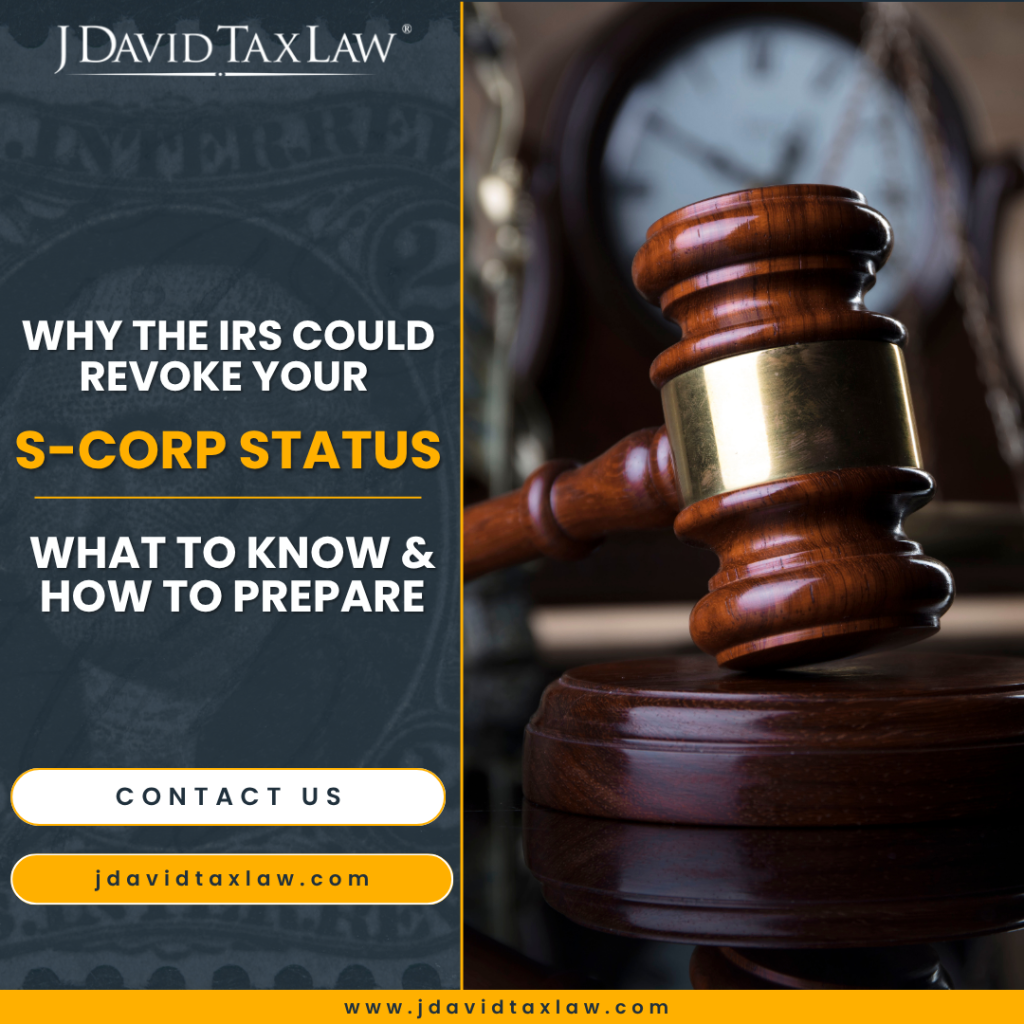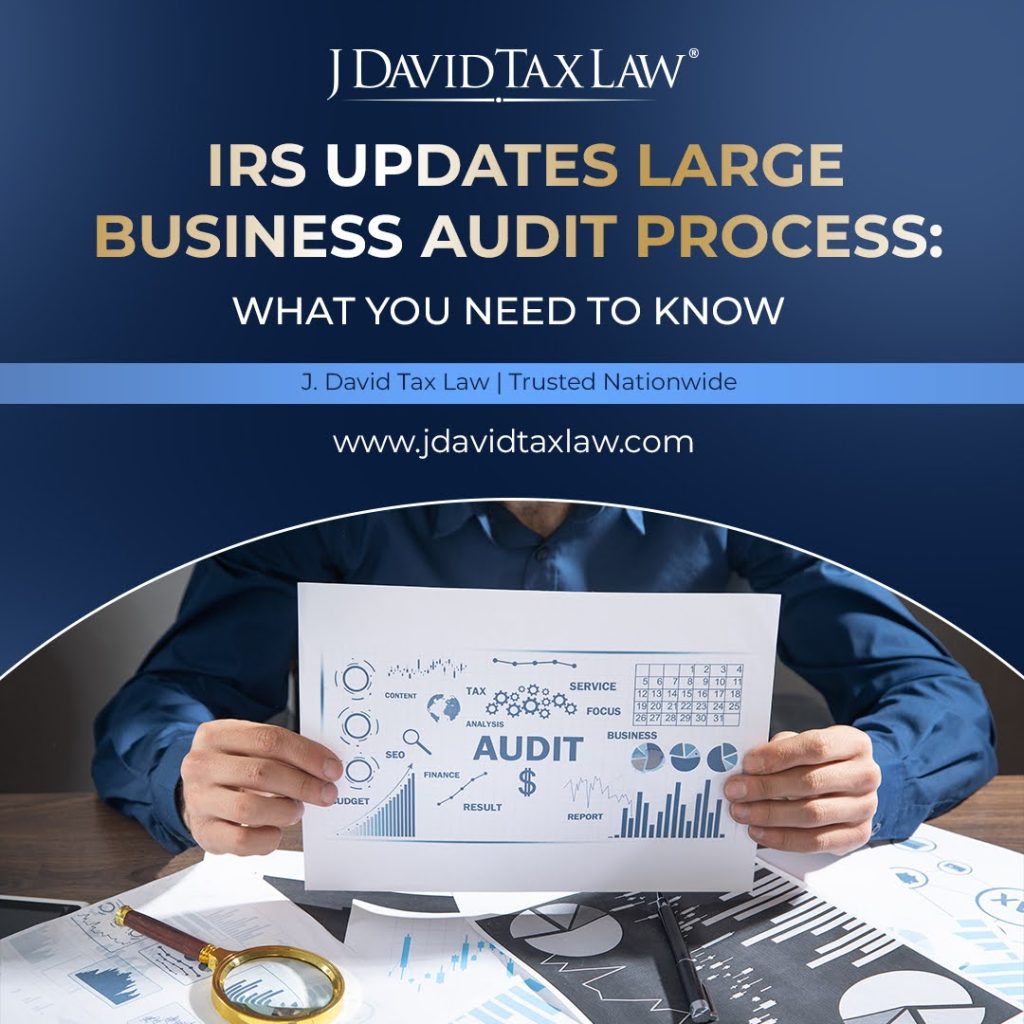Why the IRS Might Revoke Your S‑Corporation Status — and How to Fight It
The IRS can revoke your S‑Corporation election if you violate eligibility rules, such as harboring ineligible shareholders, issuing more than one class of stock, or missing key filing requirements. In some cases, the revocation can be retroactive, leading to surprise tax bills and penalties.
S‑Corporation status is popular for its pass-through tax treatment, but it comes with strict compliance standards. If you make a misstep, the IRS has the authority to reclassify your business as a C corporation, which could double your tax burden.
In this guide, you’ll learn why S‑Corp status gets revoked, how to avoid common traps, and what to do if the IRS has already issued a revocation or warning. We’ll also explain how to fight a termination and protect your company’s tax standing.
The IRS is Forgiving Millions Each Day. You Could Be Next.
IRS Grounds for Revoking S‑Corporation Status
The IRS can revoke an S‑Corporation election if your company no longer meets the eligibility requirements outlined under IRC §1362. In many cases, revocation occurs automatically when a violation is triggered, even without formal notice.
Common Reasons the IRS Revokes S‑Corporation Status
The IRS doesn’t arbitrarily revoke an S‑Corporation election. Revocation typically happens because the company has violated one or more of the eligibility rules laid out under the Internal Revenue Code. These missteps can be either accidental or intentional, but either way, they put your business at risk.
Here are the most common triggers for S‑Corp termination:
Exceeding the Shareholder Limit
An S‑Corp cannot have more than 100 shareholders. If additional shareholders are added and the limit is exceeded, your S election becomes invalid. This often happens when stock is issued without understanding the ownership rules.
Ineligible Shareholders
Only certain types of shareholders can own S‑Corp stock. If a non-resident alien, partnership, or corporation acquires shares, even unintentionally, it can revoke your S‑Corp status.
Creating a Second Class of Stock
S‑corporations must have only one class of stock. That means all shareholders must have identical rights to distributions and liquidation proceeds. If you issue preferred stock or set up special distribution rights, the IRS may determine you’ve violated this rule.
Earning Too Much Passive Income
If your S‑Corp was previously a C‑Corp and you earn excessive passive income (like rent, royalties, or dividends) for three consecutive years while also having accumulated earnings and profits (E&P), the IRS may terminate your S‑Corp status. This is known as the “passive investment income test.”
Late or Improper Tax Filings
Failing to file the necessary S‑Corp tax forms (like Form 1120-S) or not responding to IRS notices about discrepancies can also lead to revocation, especially if these issues continue over multiple years.
Why These Triggers Matter
In many cases, companies don’t realize their S‑Election has been terminated until the IRS issues a revocation letter or audits a return. This delay can result in years of unexpected tax liability, including back taxes, interest, and penalties, filed under the less favorable C‑Corporation rules.
Tax Consequences of Losing S‑Corporation Status
A revoked S‑Corporation status means your business is automatically treated as a C‑Corporation for federal tax purposes. This shift can trigger a number of serious financial consequences if not addressed quickly.
Double Taxation Risks
Unlike S‑Corporations, which are pass-through entities, C‑Corporations pay taxes at the corporate level, and shareholders are taxed again on dividends. This can significantly increase your total tax burden, especially if profits are distributed regularly.
Built-In Gains Tax Exposure
If your company holds appreciated assets and the S‑Election is revoked, the IRS may impose a Built-In Gains (BIG) tax on asset sales that occur within five years of the status change. This hidden liability often catches businesses off guard during liquidation or restructuring.
Disqualified Distributions
Distributions made while a company believes it’s still an S‑Corporation may be treated as taxable dividends by the IRS after revocation, especially if they exceed the company’s earnings and profits (E&P). These surprise tax bills often fall directly on shareholders.
Penalties for Misfiling
If you continue to file Form 1120S after revocation, the IRS may reject your filings and impose failure-to-file and failure-to-pay penalties. You’ll also need to amend returns using Form 1120 (for C‑Corporations), which can delay resolution and increase interest owed.
Consult a national tax attorney to deal with penalties on your business.
How to Respond If Your S‑Corporation Status Is Revoked
Losing your S‑Corporation status isn’t the end of the road but how you respond can make all the difference. If the IRS sends you a revocation notice, act quickly and methodically to assess your options and avoid long-term tax consequences.
1. Understand the Reason for Revocation
Carefully review the IRS communication. The notice should include the reason your S election was terminated, such as exceeding the 100-shareholder limit, having an ineligible shareholder (like a non-resident alien or a corporation), or failing to meet income distribution requirements. Identifying the root issue is critical to resolving it.
2. Consult with a Tax Attorney or CPA
Not all S‑Corp terminations can be reversed, but a seasoned tax professional can evaluate your case and determine if corrective action is possible. This is especially important if the revocation occurred due to an unintentional mistake or a correctable oversight.
3. Correct the Underlying Violation
If the termination stemmed from a correctable issue, for example, mistakenly issuing shares to an ineligible shareholder, it may be possible to fix the problem and petition the IRS for relief. The IRS allows relief for late or inadvertent terminations under certain circumstances, especially if reasonable cause can be demonstrated.
4. Request Retroactive Reinstatement
Under IRC Section 1362(f), if the IRS believes the termination was inadvertent and that you took timely steps to correct the issue, they may allow your company to regain S‑Corp status retroactively. This requires a formal request along with supporting documentation and a clear timeline of corrective actions.
5. Appeal If You Disagree
If the IRS revokes your S election and you believe it was a mistake or a misinterpretation of facts, you can appeal the decision. Appeals must be made within specific timeframes and should be supported by solid legal and financial arguments. An experienced tax attorney is your best asset in navigating this process.
Reinstating S‑Corporation Status After Revocation
If your S‑Corporation status has been revoked either automatically due to violations or voluntarily through a revocation letter, regaining it is possible, but not automatic. The process is technical and requires careful compliance.
There’s A Waiting Period
If the revocation was voluntary, the IRS generally requires you to wait five years before making a new S‑Election. This applies unless the IRS grants special permission for earlier reinstatement, which is rare and typically reserved for businesses that can show reasonable cause.
If your S‑Corp status was revoked involuntarily (e.g., due to eligibility violations), you must first resolve the issue that caused termination. For example, if you added an ineligible shareholder, that individual must divest their interest or become eligible again.
Filing a New Election
To reinstate S‑Corporation status, you must file Form 2553 (Election by a Small Business Corporation). It must be signed by all shareholders and submitted to the IRS. If you are filing after the standard deadline, you must include a reasonable cause explanation for the delay and request late election relief under Rev. Proc. 2013-30.
Proceed with Professional Guidance
Due to the complexity and risks involved, businesses seeking reinstatement are advised to work with a tax attorney or an experienced tax professional. Mistakes in this process can lead to further delays, rejections, or even IRS audits. Proper representation helps ensure that your S‑Election is reinstated correctly and without further issues.
Don’t Let a Revoked S‑Corp Status Derail Your Business
If you’re at risk of losing your S‑Corporation status or have already received notice of termination, taking quick, informed action can make all the difference. A revoked S‑Election can mean higher taxes, complex filings, and long-term financial consequences if left unaddressed.
Our tax attorneys have helped business owners across the U.S. respond to IRS revocations, correct eligibility violations, and file successful reinstatement requests backed by strong legal reasoning.
Contact J. David Tax Law for a free consultation today.




















